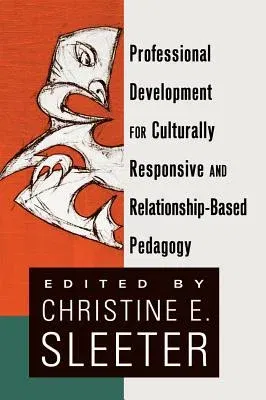Professional Development for Culturally Responsive and Relationship-Based PedagogyPaperback, 6 October 2011

Qty
1
Turbo
Ships in 2 - 3 days
In Stock
Free Delivery
Cash on Delivery
15 Days
Free Returns
Secure Checkout

Part of Series
Black Studies and Critical Thinking
Print Length
202 pages
Language
English
Publisher
Peter Lang Copyright AG - Ipsuk
Date Published
6 Oct 2011
ISBN-10
1433114704
ISBN-13
9781433114700
Description
Product Details
Book Format:
Paperback
Country of Origin:
US
Date Published:
6 October 2011
Dimensions:
22.35 x
14.99 x
1.27 cm
ISBN-10:
1433114704
ISBN-13:
9781433114700
Language:
English
Location:
New York
Pages:
202
Publisher:
Weight:
294.83 gm